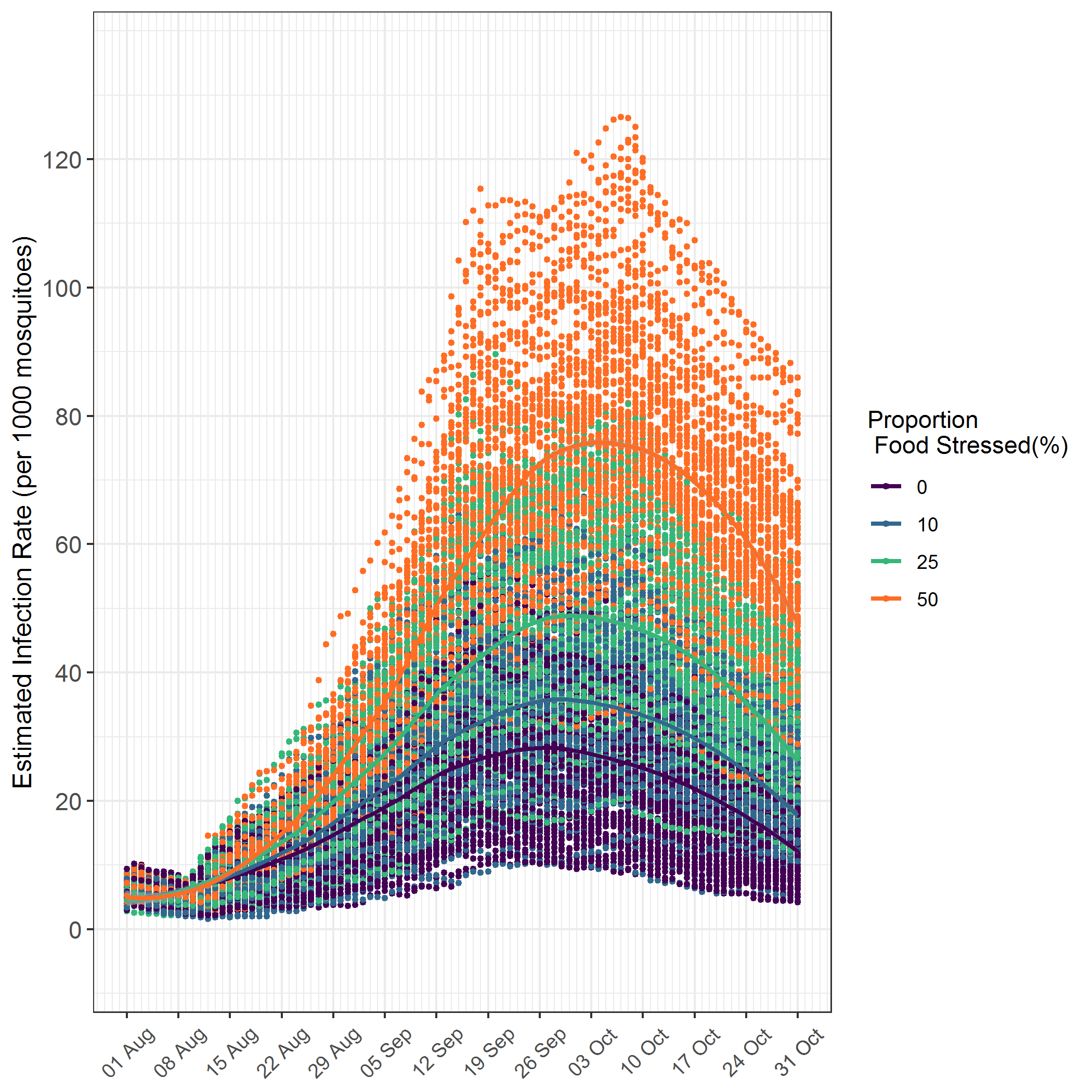Reservoir hosts experiencing food stress alter transmission dynamics for a zoonotic pathogen

Anthropogenic environmental change can significantly alter availability and quality of food resources for reservoir hosts and impact host-pathogen interactions in the wild. Nutritional reserves of the host at the time of infection is a key factor influencing infection outcomes in the spread of zoonotic diseases. This study combines experimental and model-based approaches to better understand how an environmental stressor affects host resistance to West Nile virus. American robins, who were derived of food prior to infections, developed higher virus titers and were infectious longer compared to robins fed normally.
CSTAT collaborator: Dhruv B. Sharma
